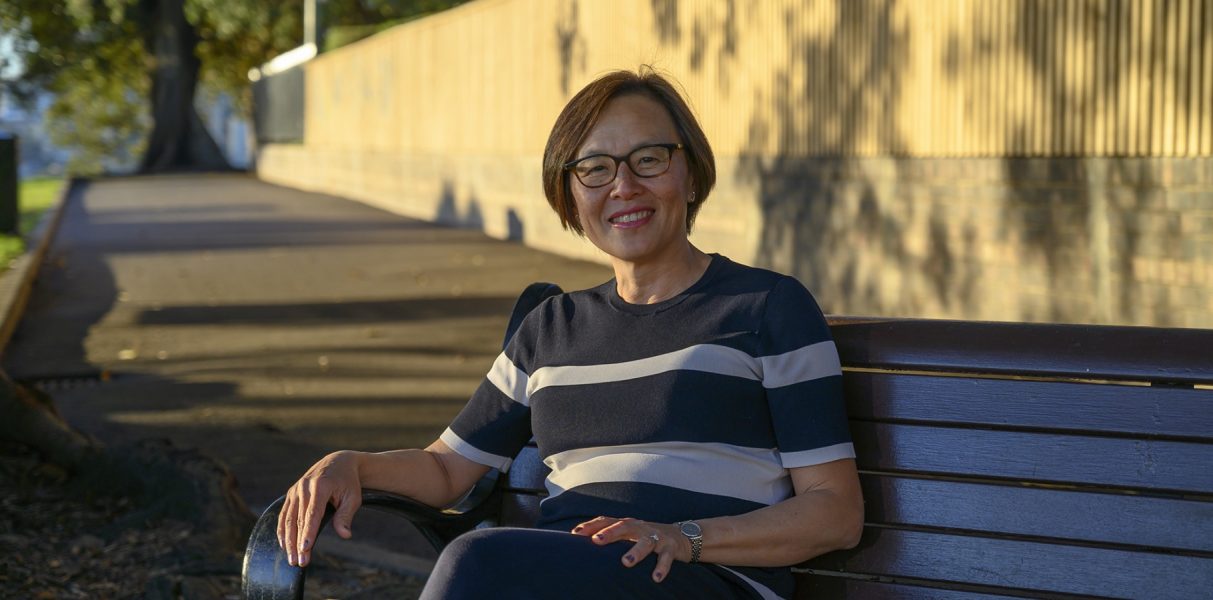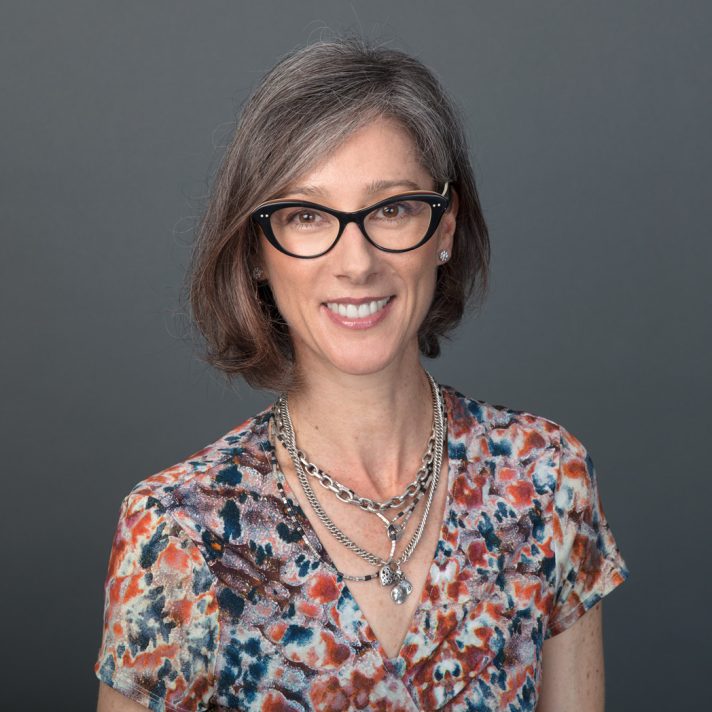Math made in heaven
Taylor Fry's Win-Li Toh discusses where her passion to be an actuary came from and what keeps the inspiration fresh
As a kid growing up in a small mining town in Malaysia, Taylor Fry Principal Actuary Win-Li Toh always dreamed of going to Oxford University.
Toh says she was drawn to all that history of ‘great minds solving the world’s problems together’.
‘At the age of 18, my dream became reality through my love of maths,’ she recalls.
‘I enjoyed every moment of my time there but, at the end of it, had no idea what job I could do with a pure maths degree.
‘I took myself to a careers fair in London to find out and came across a couple of charismatic actuaries — yes, it is possible — and from there, my actuarial journey began.’

Win-Li Toh pictured
A focus on affordability
A couple of years ago, on a plane, Toh met Dr Patricia Berwick, an anthropologist who advises industry and governments around the world.
‘To my horror, Dr Berwick told me that insurance will be dead in 20 years because no one will be able to afford it.
‘Well, that sharpened my focus,’ Toh says.
‘I realised that there’s no point doing clever things if it’s not affordable for the people we’re doing it for.
‘Affordability may be one of the most challenging aspects of insurance, with pressure from all quarters, but it’s the most important service to our customers – and sound actuarial analysis is a key driver.
‘One area I’ve seen increasing demand for is fraud analytics, where the use of sophisticated actuarial analytics to detect fraudulent claims means insurers can lower prices for policyholders with genuine claims.’
Compassion in policy design
Toh, one of Taylor Fry’s leaders in its General Insurance practice, believes actuarial analysis enhances the ability for compassion in policy design.
‘In travel insurance, for example, actuaries analyse data from the Australian Bureau of Statistics and other sources to see how we can add mental health issues into policy design,’ she says.
‘This might allow a traveller stuck overseas due to a mental health condition to make a legitimate claim and get home in the same way as someone with a physical condition, such as a broken leg from skiing.
‘Without this analysis, insurers have no way of knowing how to price for mental health and other medical conditions in a systematic, data-driven and sustainable manner.’
Sceptics and optimists
Toh says she has noticed industry players transform over the years, explaining that she once saw actuaries as natural sceptics trained to see risk, and underwriters as eternal optimists selling to the customer.
‘Of course, I had no statistical proof of this,’ she quips.
These days, Toh sees a trend towards greater collaboration and assimilation between the two roles.
‘There is more focus on understanding risks better to inform pricing decisions across personal and commercial lines, facilitated by increased granular data, as well as greater competition.’
The social good
Asked to describe the achievement she is most proud of, Toh points to the work Taylor Fry does to take insurance principles and techniques across different expert areas, and to pioneer their application in the social sector and for social good.
‘The insights into improving social outcomes now extend across justice, social housing, welfare, disability employment and vulnerable children,’ she says.
‘This work is the result of the significant assimilation of ideas by our actuaries and governments on both sides of the Tasman, as well as academics, policymakers, public servants, economists and those who deliver the services, such as NGOs.
‘It has now come full cycle, with the learnings coming back to insurance, especially in workers’ compensation and compulsory third-party sectors.
‘Our learnings combine the technical perspective with a people-centric view in modelling longer-term outcomes. It’s very timely.’
Welcoming the spotlight
Toh is optimistic about the outlook for the industry and says Insurers should welcome the current Royal Commission into Misconduct in the Banking, Superannuation and Financial Services Industry.
‘All industries benefit from having a spotlight shone onto them every so often,’ she says.
‘It’s not about trying to root out corruption or overhaul the industry.
‘Rather, when something has been in place for a long time, we can forget why we’re doing what we’re doing and who it’s all for.
‘A review sharpens our focus and, yes, it will draw out some poor practices and a few bad eggs, but for all of us, it serves as a useful reminder of why we are here and who we are trying to help.’
She adds that the main change needed is clarity on what’s covered, without the customer having to trawl through lengthy jargon, so there are no surprises when calamity strikes.
‘It’s about transferring the balance of power to people.’
Fantastic time to be an actuary
Looking to the future, Toh sees the actuarial role widening.
‘Yes, actuaries have a very specific skill set but, increasingly, people want to know why we advise them to take a particular course and look to us to communicate it clearly and simply to their customers.
‘It’s a fantastic time to be an actuary — we’ve always loved modelling and problem solving — but suddenly big data and all that technology has opened enormous possibility.
‘Today, we can be anything from data scientists to entrepreneurs in the insurtech space.’
For Toh, who presents and runs educational courses and training for a variety of audiences, this new environment is ideal for actuarial training.
‘The structure and discipline of our training ensures we can embrace information as it continually evolves and improves,’ she says.
‘In addition, the integrity of our profession is embedded in everything we do. Key to the actuarial brand is that we’re smart and trusted to do what’s right.’
GI Breakfast Panel
Win-Li Toh will join the panel at this year’s General Insurance Breakfast to be held at the Westin Hotel in Sydney, and says it’s critical in this climate of scrutiny to remember the purpose of insurance.
‘It’s about pooling risk and providing a safety net for those who need it most. As actuaries, we can be caught up in the intellectual challenge of sophisticated modelling, but we’re there to help ensure those nets are sound and sustainable.
‘If the Hayne review reminds us we are here to help people in a time of unexpected calamity and to make sure they’re not facing those times alone, then this will have to lead to a better customer experience.’
Toh says events like the GI Breakfast enable the industry to explore the conversation together, and this year Taylor Fry is sponsoring the coffee carts.
‘In a way, it’s a fun homage to that 1600s coffee house of Edward Lloyd, where merchants and ships’ captains would discuss their business — this, of course, became Lloyds of London.
‘Come solve the problems of the world over an intimate chat and a good coffee.’
As first published by ANZIIF, 25 September 2018
Recent articles
Recent articles
More articles

Taylor Fry boosts climate expertise
Climate and financial risk specialist Dr Ramona Meyricke rejoins our ranks to lead our climate practice, as we focus on meaningful solutions
Read Article

LA wildfires – implications for the upcoming Australian reinsurance renewals
What are the flow-on effects of the January LA wildfires in Australia?
Read Article





